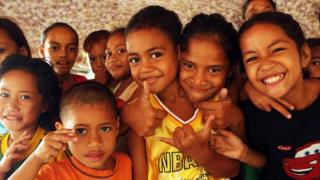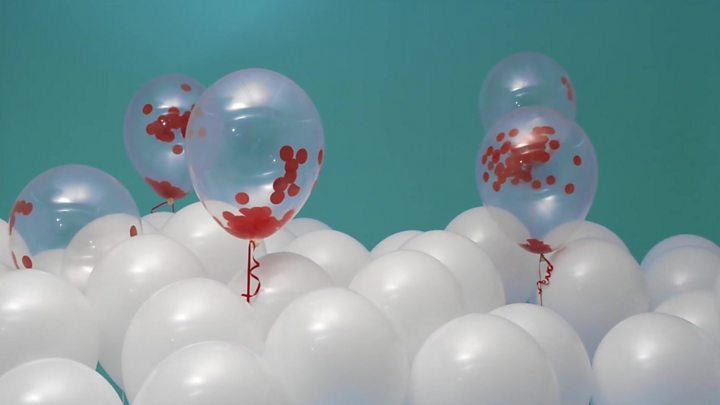The wrong jab that helped cause a measles crisis
The number of people killed in Samoa’s measles outbreak has reached 53, with almost 4,000 cases reported in total.
Health Ministry statistics show that 48 of the dead are children below the age of five.
Although measles deaths worldwide have fallen sharply since the 1960s, the World Health Organization has warned of a comeback around the world since 2017.
Samoa’s low vaccination rates are in part due to the deaths in 2018 of two children given a wrongly-mixed vaccine.
Measles is a highly contagious illness that causes coughing, rashes and fever.
Although effective and safe vaccination is available, even some developed countries have seen a resurgence in recent years.
The rise is – in part – due to some parents shunning vaccines for philosophical or religious reasons, or concerns, debunked by medical science, that vaccines are linked to autism.
How bad is the Samoa measles outbreak?
On Monday, the Pacific island nation said the overall number of cases stands at 3,728.
The number of new cases recorded on Sunday and Monday alone was 198.
The country, with a population of around 200,000, declared a state of emergency on 20 November.
Most public gatherings have been banned and schools and universities have been closed.
“The situation has a tremendous impact on everybody,” Sheldon Yett, Unicef representative to the Pacific, told the BBC.
“People are nervous, people are seeing the impact of this disease. Samoa is a very small country and everybody knows somebody who’s been affected by this.”
Since the emergency declaration last month, a mass vaccination campaign has got under way, with more than 58,000 people successfully vaccinated, the government said.
The epidemic has also seen a surge in alternative medicines touted as cures. Some reports suggest vitamin products or alkalised water are being sold as treatment.
Why is Samoa hit so hard?
Vaccination rates – meaning the number of young children covered – recently dropped to a low of only 31% in Samoa, compared to 99% in nearby Nauru, Niue, and Cook Islands.
In part, that low rate has been attributed to the deaths of two children.
In July 2018, two infants died in Samoa after receiving vaccinations against measles, mumps and rubella, raising local fears over the vaccine itself.
But the deaths were later established to have been due to the nurses mixing the vaccine with an expired muscle relaxant, instead of water.
The two nurses pleaded guilty to manslaughter and were sentenced to five years in prison.
“We have to make clear that vaccines are perfectly safe,” Mr Yett said.
“These deaths were due to human error. But the fact that you had two children die on the same day in the same institution, obviously caused a great deal of distrust towards the health system and towards vaccinations.
“It provided the perfect opening for people who wanted to spread misinformation and lies.”
‘Lies and misinformation’
Aid from the US, New Zealand and Australia is helping local health authorities in Samoa to drive the mass vaccination.
But the key message from the current crisis, said Mr Yett, is that parents should vaccinate their children.
“People who are spreading lies and misinformation about vaccinations are killing children,” he said.
“The best way to keep children safe is to make sure they’re immunised. Preventing vaccination and presenting false information kills children. That is clear – the evidence speaks for itself.”
Ideally, every country should have an immunisation level of above 90%, he said.
Samoa’s fellow Pacific island nations Tonga and Fiji have also declared states of emergency to tackle their measles outbreaks.
However, both countries have far higher vaccination rates and have so far not reported any deaths.
The global surge
Worldwide, the number of cases quadrupled in the first three months of 2019 compared with the same time last year, according to the World Health Organization (WHO).
Before the introduction of a vaccine in 1963, “major epidemics occurred approximately every 2-3 years and measles caused an estimated 2.6 million deaths each year”, according to the WHO.
Numbers of measles cases were steadily declining worldwide until three years ago, when the illness saw a resurgence.
Earlier this year, the WHO said four European countries, including the UK, were no longer seen as measles-free.
It is estimated that a global total of 110,000 people die from measles each year.
Source: Read Full Article




